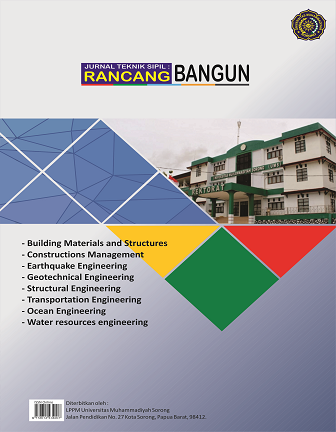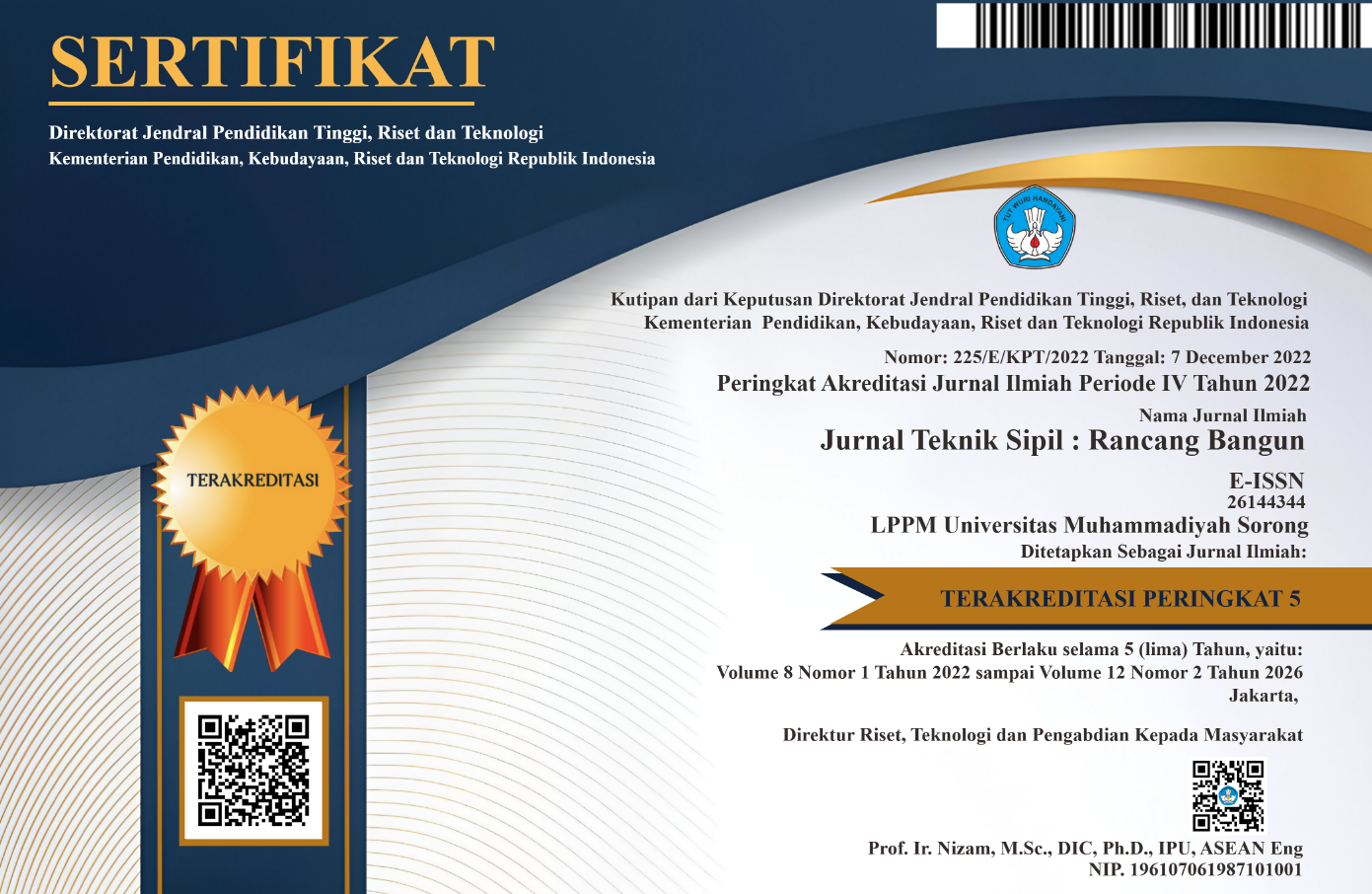The Effect Of Seawater Use On Concrete Mixtures With Variations In Semen Water Factor
DOI:
https://doi.org/10.33506/rb.v6i2.1141Keywords:
Concrete, Fine Aggregate (Sand), Rough Aggregate (Gravel), Seawater, StrongAbstract
The purpose in this study was to know the characteristic properties of fine aggregate materials and rough aggregates derived from Badene Village batauga sub-district as well as to know the strong press produced by concrete against seawater mixture with variations of cement water factor. In this study the material was mixed using laur water and fresh water with variations in cement water factor which is 0.45, 0.50, and 0.55. Testing is carried out at the age of concrete 3 days, 7 days and 28 days, using the dimensions of the slinder test object 15 cm x 30 cm. The total number of test objects is 54 pieces. The stronger the concrete press by using seawater as a concrete mixture can increase the strong press of concrete when compared to fresh water, as well as the smaller the value of the cement water factor used then the greater the strong value of the press. Strong press concrete with seawater mixture using cement water factor 0.55, 0.50, and 0.45 at age 28 days produce strong concrete presses respectively 15.82 MPa, 18.65 MPa, and 20.85 MPa, while strong concrete press with freshwater mixture using cement water factor 0.55, 0.50, and 0.45 at 28 days old produce strong concrete press 15.70 MPa respectively 18.40 MPa and 20.00 MPa. The results showed the influence of seawater use on concrete mixtures can increase the strength of the press compared to the use of concrete mixtures using fresh water.References
Annisa Junaid, dkk. Studi Kekuatan Beton Yang Menggunakan Air Laut Sebagai Air Pencampur Pada Daerah Pasang Surut. Teknik Sipil Universitas Hasanuddin Makassar.
Anonim, Bidang Pengujian dan Pengembangan Teknologi. 2010. Persyaratan SNI, Buku I, Dinas Bina Marga Provinsi Sulawesi Selatan .Makassar.
Anonim, Bidang Pengujian dan Pengembangan Teknologi., 2010. Persyaratan SNI, Buku II, Dinas Bina Marga Provinsi Sulawesi Selatan, Makassar
Anonim, Badan Penelitian dan Pengembangan Jalan dan Jembatan., 2010 Teknologi Beton, Pekerjaan Umum, Bandung
Anonim, Badan Penelitian dan Pengembangan Jalan dan Jembatan.,2010. Pengendalian Mutu Pekerjaan Beton, Kementrian Pekerjaan Umum, Bandung
ASTM C 33/03.Standar Spesifikasi For Concrete Aggregates.
Dipohusodo. 1999:4. Struktur Beton.Jakarta:Gramedia Pustaka Utama.
Ir. Tri Mulyono, MT, Teknologi Beton, Penerbit Andi.Yogyakarta. 2005.
Irfan Sanjaya HTB.(2013). Studi Eksperimental Kuat Tekan Beton Terhadap Variasi Penambahan Natrium Klorida (Nacl).Tugas Akhir: Universitas Hasanuddin Makassar
M.W. Tjaronge, dkk. Studi Eksperimental Kuat Tekan Beton Self Compacting Concrete (SCC) dengan Menggunakan Material Pasir Laut dan Air laut. Teknik Sipil Universitas Hasanuddin Makassar
Downloads
Published
How to Cite
Issue
Section
License
Copyright (c) 2020 Muh. Sayfullah S.

This work is licensed under a Creative Commons Attribution-ShareAlike 4.0 International License.






